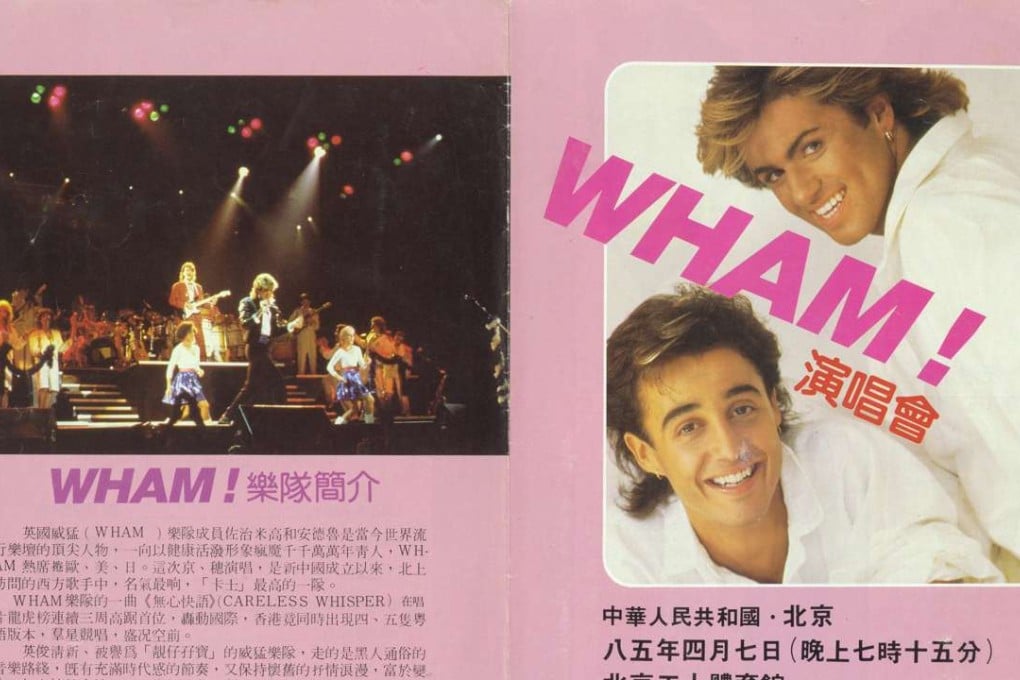How Wham! woke me up to a China that would go, go and soon be gone
George Michael’s death evokes memories of a groundbreaking concert in 1980s Beijing that came to symbolise the country’s transformation into a modern nation

As a young man living for the present and not thinking too much, I may not have made the most of the piece of history that was Wham!’s concert in Beijing’s Workers Stadium, one cool April night in 1985. But now, prompted by the death of George Michael to recall that time, I can see that the concert I attended was more than just a musical first, it was a symbol of the changes that were setting China on the road to the country it is today.
When Wham! came to China
Deng Xiaoping (鄧小平) had started the ball rolling in the late 1970s by opening the country to foreign trade and bringing in the idea of entrepreneurism, and the period from late 1984 to 1986 was an interesting time to be in the Chinese capital as it felt as if Deng’s ideas had started to really gather pace. A graduate in Chinese from Britain’s Durham University, I had been teaching English at Beijing Agricultural University from late 1984 before moving to New World Press, part of the government’s Foreign Languages Publishing Administration (FLP), the following year as an editor and translator for their English-language publications.

I’d actually first been to Beijing on a one-year study course three years before the Wham! concert, as part of my degree. On our arrival in Beijing in September 1981, after an almost three-day train journey from Guangzhou, my fellow students and I were issued with grain coupons to allow us to eat in restaurants and cotton coupons so we could buy the thick padded green or blue coats necessary for the Beijing winter. We got, by all accounts, a more generous allocation of coupons than the locals.
We were also getting a look at a disappearing China, though we didn’t know it at the time. By my return, the coupons were gone. Other changes were also apparent, and continued over the two years I made the city my home. Private restaurants were appearing, bars too; the markets and stores sold clothes and fashions other than the green and blue jackets and baggy trousers that had been standard wear for decades. And people were wearing the new styles in public, staff in my office wore tight jeans. Hotels were being built to accommodate the growing numbers of Western and Japanese businessmen looking for new opportunities, and suddenly it became possible to get a real pizza in town, although they were a little out of reach for those of us on local salaries.
